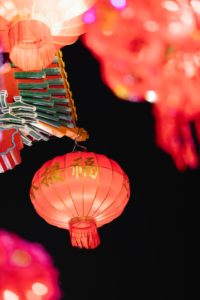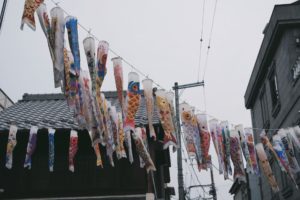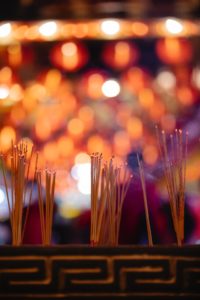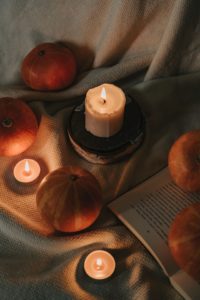How Various Cultures Celebrate a Festival Honoring the Ancestors?
The notion that the deceased souls have a continuing presence and/or the ability to impact the fortunes of the living is the basis for ancestor veneration. Furthermore, ancestral reverence provides support or non-religious purpose in nurturing familial values such as family love, filial piety, and family lineage continuity. Unsurprisingly, there are plenty of festivals honoring ancestors from all cultures of the world.
While not universal, ancestor veneration can be found in communities with varying levels of political, social, and technological complexity, and it is nevertheless a significant part of many religious traditions today.
Various cultures that celebrate festivals honoring the ancestors
-
China
The Qingming Festival is a Chinese festival honoring the ancestors that takes place on the 104th day after the winter peak and allows people to recall and honor their forefathers and mothers at gravesites.
Young and elderly bring wine, food, chopsticks, tea, libations to the ancestors, and/or joss paper attachments, sweep the tombs. So, this national holiday is marked on April 5 in Taiwan since it was relocated to that date by the ruling Kuomintang to commemorate Chiang Kai-death shek’s on that date.
What is the Chinese way of celebrating the Qingming festival?
The Qingming festival features a variety of events. Further, tomb maintenance and renovation, kite flying, spring outings, and placing willow branches on gates have all been a feature of this celebration since the beginning.

People frequently engage in sports to fight off the cold and look forward to the arrival of spring.as a result, through its customs, the celebration incorporates both solemnity and joy.
The most significant custom of the Qingming festival is tomb sweeping.
People pay their respects to their forefathers and mothers by paying visits to their graves, burning incense, and burning or (representing money).
They clean the tombs, remove weeds, and fill the graves with fresh mud. They might decorate the tomb with willow branches, flowers, or fake plants. Qingming Festival is an annual event held in Qingming, China.
People in Qingming regularly venerate their ancestors by lighting incense and leaving ‘paper money’ at their gravesites. Therefore, they pray at the graves of their ancestors, begging them to bless their families. However, the tradition has been substantially simplified in recent years, particularly in cities, where many individuals just place flowers on the graves of their deceased relatives.
-
Japan
The Bon Festival is a Buddhist tradition in Japan that honors our ancestor’s spirits. The tradition of Buddhist-Confucian has developed into the reunion of a family festival honoring the ancestors in which individuals are visiting and cleaning the graves of their ancestors, and when their ancestor’s spirits are said to return to the domestic altars. Moreover, in Japan, it has been honored for almost five hundred years and involves a traditional performance of dance called Bon-Odori.
The Bon Festival, also called Obon, is a Japanese festival honoring the ancestors. Although Obon is observed in various ways depending on the region, it is an important aspect of Japanese culture and is extensively observed across the country.

Obon is based on the notion that loved ones’ spirits and souls, as well as dead ancestors, return to visit. However, lanterns are typically strung in front of dwellings, dances are presented, and sacrifices (ozen) are placed in front of temples, altars, and sometimes gravesites during Obon. Similarly, many people may also visit cemetery sites to clean and wash their family’s gravestones and grave markers.
Lanterns and fires are extinguished at the ending of the Bon festival time to send the spirits back to where they came from. Therefore, lanterns, lit with a candle that symbolizes the ancestors’ souls, are sometimes released into the river.
-
Korea
Jesa is a Korean festival honoring the ancestors that is widely observed. Jesa is traditionally held on the death anniversary of the ancestors. Moreover, Gijesa is an annual funeral service held on the anniversary of a beloved ancestor’s death. Gijesa is done in the residence of the eldest descendant for at least five generations of ancestors.

The memorial services held on New Year’s Day or Chuseok are called as “charye.” Koreans visit their ancestors’ tombs on April 5th and before Chuseok to trim the grass off the monuments. Moreover, they then make bows in front of the tombs and present fruits, food, and drink. Moreover, “Seongmyo” refers to memorial services held in front of tombstones.
How is a Jesa ceremony performed?
- The 1st stage is to call the ancestors, or gangsin.
- The 2nd stage is to greet the ancestors, which is called chamsin.
- The 3rd phase is jinchan, which translates to “service the ancestors.”
- The 4rth stage is choheon, or pouring a drink for the ancestors.
- The 5th phase is aheon, which involves receiving a second drink.
- The 6th stage is jonghun, which is a third drink.
- Yusik, or offering food to the ancestors, is the 7th step.
- The 8th phase is hapmun, which allows the ancestors to rest in peace.
- The doors are opened in the 9th step, gyemun.
- The last stage is sasin, which means saying goodbye to the ancestors.
- Wales
Allantide is a celebration of Cornish that is held on October 31st & is also called as Halloween in other parts of the world. So, the event, like other festivities on this date, appears to have pre-Christian beginnings; nevertheless, in Cornwall, it was generally associated with Arlan or St Allen, a known Cornish saint.

Allantide is also called Allan Day as a result of this. As a result, it’s considered that the term Allantide came from the exact aged English references as Hollantide (The Isle of Man and Wales) and Halloween.
Traditions and activities of Allantide
Allantide is still observed by some people and communities in Cornwall. They can do it in a variety of ways:
- Apple tradition
- Telling fortune with the help of metal
- Other fortune telling cultures
- Turnip lanterns
How do people celebrate Allantide today?
Allantide is still observed by some people and communities in Cornwall as a festival honoring the ancestors. They can do it in a variety of following ways:
- Apple giving
- Festivals
- Dishes
- Trick or treating
- Bobbing for apples
Not Quite Halloween Allantide
You may not be aware of numerous late October festivities and festivals, like Allantide. Although it resembles Halloween in some aspects, you can undoubtedly guess by now that it’s also a distinct reflection of Cornish history.
If your culture has any interesting festival honoring the ancestors, do share with the Hedoniac community.
